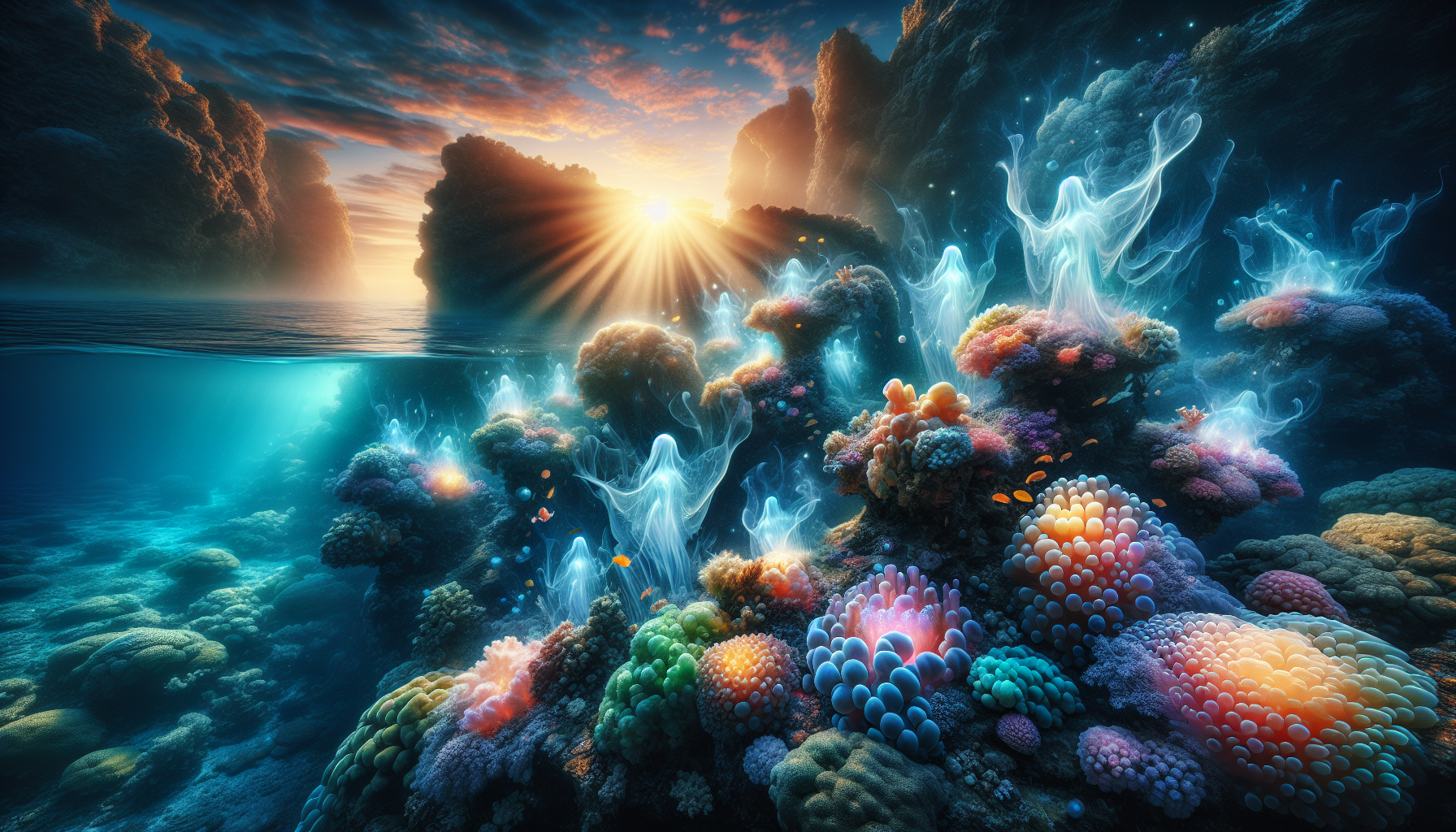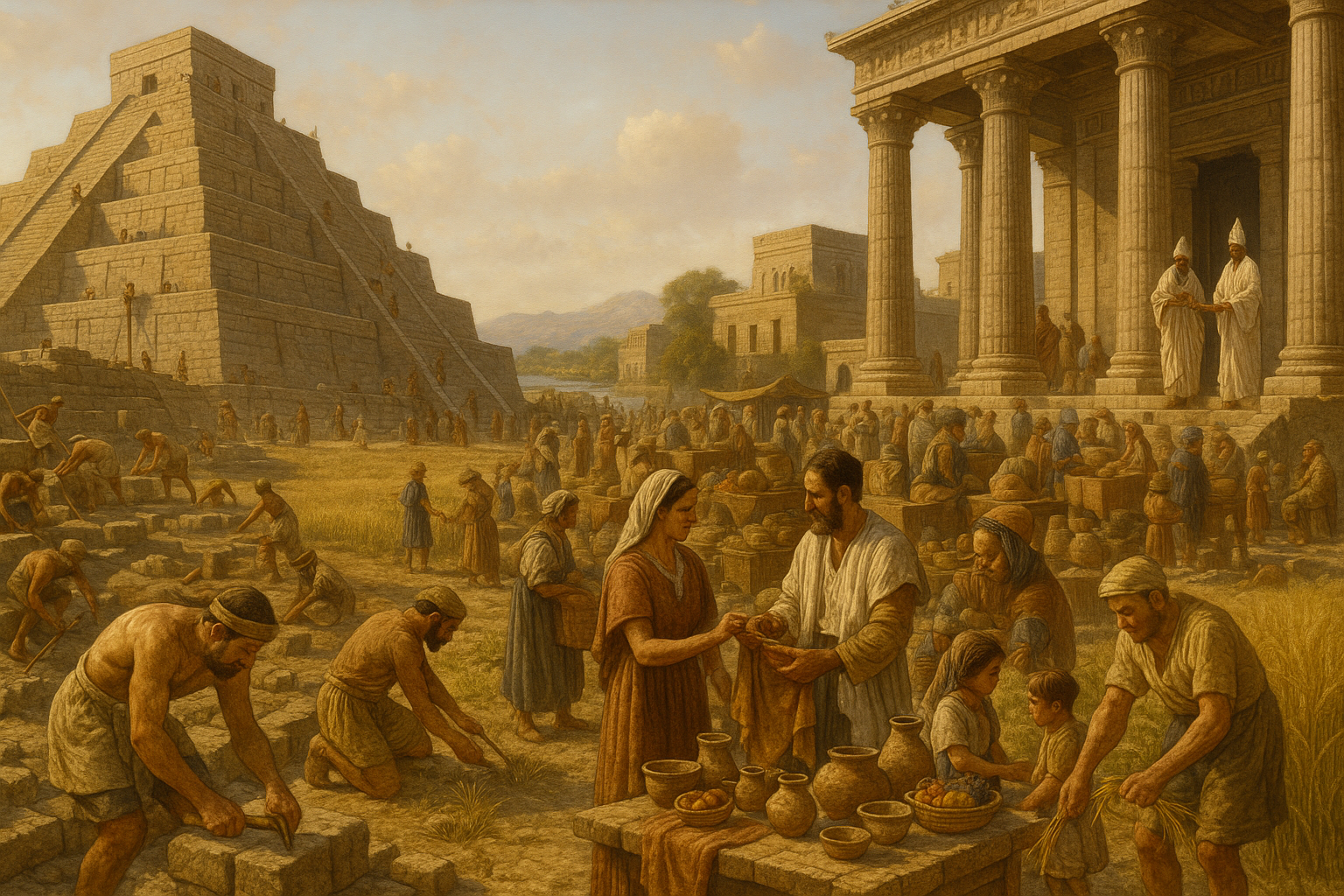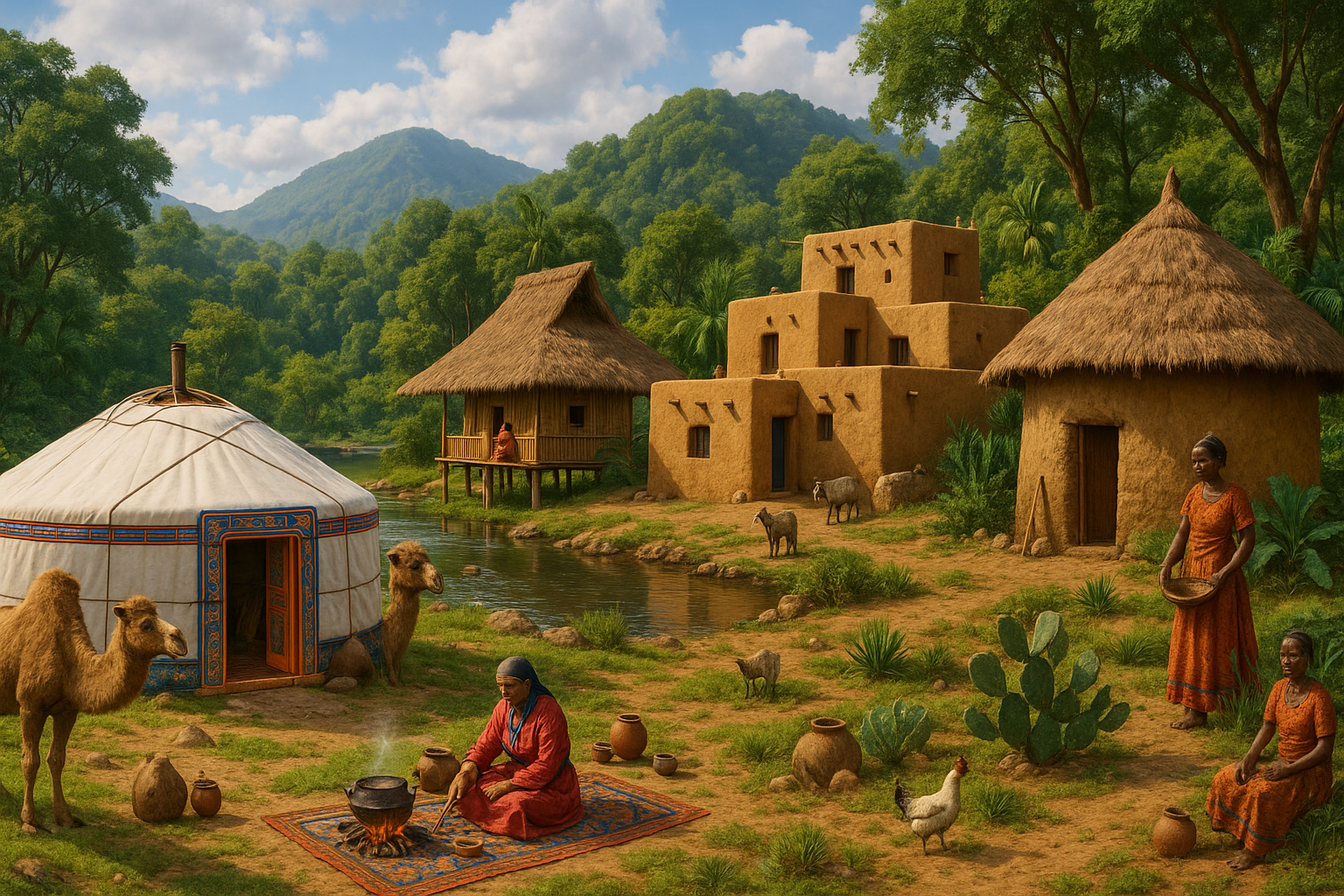In the vast, azure embrace of the world’s oceans lies a spectacle of unparalleled beauty and wonder: coral reefs. These vibrant underwater ecosystems are not only home to an astonishing array of marine life but also stand as timeless symbols of mystery and reverence in many cultures. 🌊 As sunlight dances across the surface of the water, illuminating the vivid colors and intricate structures beneath, it becomes clear why these natural wonders have inspired countless myths and legends. For centuries, coral reefs have been viewed as sacred dwelling places of spirits, revered in folklore and spirituality across the globe. This article seeks to delve into the rich tapestry of beliefs surrounding coral reefs, exploring their mystical significance and the enduring cultural connections that link humanity to these underwater marvels.
The Origins of Belief in Coral Reefs as Sacred Dwelling Places
The fascinating relationship between coral reefs and the belief in them as sacred dwelling places for spirits can be traced back to ancient cultural traditions across the globe. Many indigenous communities, especially those residing in coastal regions, have developed spiritual narratives that intertwine the natural beauty and vitality of coral reefs with divine and mystical entities. The vibrant and diverse marine life supported by these underwater ecosystems often inspires reverence and awe, leading people to perceive them as portals to the spirit world.
In Polynesian culture, for instance, the connection between the sea and spirituality is deeply embedded in their cosmology. They often regard coral reefs as the dwelling places of their ancestors’ spirits, which play a crucial role in guiding and protecting the living. Such beliefs highlight the interconnectedness between human life and the natural environment, underscoring the importance of coral reefs beyond their ecological value. The belief system of the Aboriginal Australians also reflects a similar reverence for coral reefs, considering them sacred sites that are intrinsic to their Dreamtime stories, which narrate the creation and spiritual significance of the land and sea.
Similarly, in Southeast Asia, particularly among the Bajau people, known as “sea nomads,” coral reefs are viewed as the abodes of spirits and deities. The Bajau have traditionally lived in harmony with the ocean, developing extensive ecological knowledge and a profound spiritual connection with the sea. Their rituals and practices often involve seeking blessings and protection from the spirits believed to reside within the coral reefs. This sacred relationship emphasizes a respect for marine ecosystems and a recognition of their intrinsic value to cultural and spiritual identity.
Ecological and Spiritual Symbiosis of Coral Reefs
Coral reefs are among the most biodiverse ecosystems on Earth, providing habitat and shelter for approximately 25% of all marine species. This vibrant biodiversity not only supports marine life but also has significant implications for human societies, particularly those that rely on coral reefs for food, tourism, and coastal protection. The spiritual beliefs surrounding coral reefs amplify their importance, fostering a holistic understanding of their ecological and cultural roles.
These beliefs often result in community-driven conservation efforts aimed at preserving coral reefs as sacred spaces. Indigenous peoples and local communities frequently act as stewards of these environments, drawing on traditional ecological knowledge to sustain their health and vitality. This symbiotic relationship between spirituality and ecology not only benefits biodiversity but also reinforces cultural heritage and identity, creating a powerful impetus for environmental stewardship.
Efforts to protect coral reefs are increasingly incorporating traditional knowledge and spiritual practices, recognizing the value of indigenous perspectives in conservation strategies. Collaborative initiatives between scientists and indigenous communities are helping to blend modern scientific techniques with age-old wisdom, leading to more effective and culturally sensitive approaches to coral reef conservation. Such partnerships underscore the need to respect and integrate diverse worldviews in efforts to safeguard these vital ecosystems.
Watch This Video on the Mystical Relationship Between Coral Reefs and Spirits
To delve deeper into the mystical relationship between coral reefs and the belief in them as sacred dwelling places of spirits, watch this enlightening video by National Geographic: The Mystical Coral Reefs 🌊. This video explores how various cultures perceive coral reefs as sacred spaces and the implications for conservation efforts.
Cultural Practices and Rituals Associated with Coral Reefs
Cultural practices and rituals associated with coral reefs vary widely across different regions and communities, reflecting diverse spiritual beliefs and ecological understandings. These practices often involve ceremonies, offerings, and taboos that underscore the sacred nature of coral reefs and their inhabitants.
In many Polynesian islands, traditional rituals are conducted to honor the spirits believed to dwell within the coral reefs. These ceremonies often involve offerings of food, flowers, and prayers, seeking guidance and blessings from the ancestral spirits. Such practices not only reinforce spiritual connections but also serve as a reminder of the need to respect and protect these ecosystems.
In Indonesia, particularly in Bali, coral reefs are considered sacred and are often incorporated into religious ceremonies. The Balinese people conduct Melasti rituals, which involve purifying sacred objects in the sea to bring harmony and balance to the community. These rituals highlight the spiritual significance of coral reefs and their role in maintaining cosmic order and human well-being.
- Traditional ceremonies and offerings to coral reef spirits
- Rituals for ecological balance and harmony
- Cultural taboos protecting coral reefs
Modern Challenges and the Role of Spiritual Beliefs in Conservation
Coral reefs face numerous challenges in the modern world, including climate change, pollution, and overfishing. These threats not only jeopardize the ecological integrity of coral reefs but also undermine the cultural and spiritual connections that many communities have with these sacred ecosystems. However, the spiritual beliefs surrounding coral reefs offer a unique and powerful tool for conservation efforts.
Integrating spiritual beliefs into modern conservation strategies can foster a deeper respect for coral reefs and motivate communities to take action. By recognizing the sacredness of these ecosystems, conservationists can build bridges between scientific understanding and traditional ecological knowledge, fostering collaborative efforts to protect coral reefs from further degradation.
The role of spiritual beliefs in conservation is increasingly being acknowledged by international organizations and policymakers. Programs that incorporate indigenous knowledge and cultural practices are gaining traction, demonstrating that a holistic approach to conservation, one that respects both ecological and spiritual values, is essential for the sustainable management of coral reefs.
Explore the Comparative Table of Coral Reef Conservation Efforts
| Conservation Strategy | Ecological Focus | Cultural Integration |
|---|---|---|
| Marine Protected Areas | Preservation of biodiversity and habitats | Inclusion of local cultural practices |
| Community-Based Management | Resource management and sustainable use | Empowerment of indigenous communities |
| Traditional Knowledge Integration | Enhancement of scientific research | Recognition of spiritual values |
For more insights into how cultural beliefs and practices are being integrated into conservation efforts, check out this informative discussion: “The Role of Indigenous Knowledge in Coral Reef Conservation” by the World Wildlife Fund.

Conclusion
In conclusion, the exploration of coral reefs as mystical and sacred spaces unveils a fascinating intersection between nature, culture, and spirituality. Throughout the article, we delved into the profound beliefs held by various indigenous communities who regard these vibrant underwater ecosystems as the dwelling places of spirits. This belief system not only enriches our understanding of coral reefs but also emphasizes the profound connection humans have with nature and the spiritual world.
We began by examining the cultural significance of coral reefs in different parts of the world. Indigenous communities in regions such as the Pacific Islands, Southeast Asia, and the Caribbean have long held beliefs that these reefs are inhabited by powerful spirits or deities. These beliefs influence their daily lives, guiding fishing practices, and conservation efforts, and shaping cultural rituals and traditions. Such cultural perspectives offer valuable insights into how these communities live in harmony with nature and maintain a sustainable relationship with their environment.
The article also highlighted the role of coral reefs in supporting biodiversity and their importance to the global ecosystem. As one of the most diverse ecosystems on the planet, coral reefs provide habitat and sustenance for countless marine species. This biodiversity is not only crucial for ecological balance but also for the livelihoods of millions of people worldwide who depend on fishing and tourism. The spiritual reverence for coral reefs observed in many cultures underscores the need to preserve these vital ecosystems amidst the growing threats of climate change, pollution, and overfishing.
Moreover, we explored how these spiritual beliefs can serve as a catalyst for conservation efforts. Indigenous knowledge and practices have long played a critical role in preserving natural resources. By recognizing coral reefs as sacred spaces, many communities have developed sustainable practices that protect these ecosystems from degradation. This traditional ecological knowledge, when combined with modern conservation science, offers a powerful tool for safeguarding coral reefs for future generations.
As we reflect on the mystical world of coral reefs, it becomes clear that there is much we can learn from the spiritual and cultural dimensions of these beliefs. They remind us of the interconnectedness of all life forms and the importance of respecting and protecting the natural world. The reverence for coral reefs as sacred places encourages us to adopt a more mindful and holistic approach to environmental stewardship.
The exploration of this theme also invites us to appreciate the diversity of human cultures and the myriad ways in which people find meaning and connection in the world around them. By understanding and valuing these perspectives, we can foster greater empathy and cooperation in our efforts to address global environmental challenges.
In closing, the belief in coral reefs as sacred dwelling places of spirits offers a rich tapestry of insights that bridge the gap between science and spirituality. It inspires us to reflect on our own relationship with nature and to consider how we can contribute to the preservation of these magnificent ecosystems. Let us be inspired by the wisdom of indigenous cultures and take action to protect our planet’s natural wonders. 🌍
We encourage you to share this article with others to raise awareness about the importance of coral reefs and the spiritual beliefs that surround them. Engage in conversations, explore further research, and consider how you can incorporate these insights into your own life and community. Together, we can work towards a future where coral reefs and the diverse cultures that honor them thrive.
For further reading and research, you can explore the following active sources:
1. National Geographic’s article on coral reefs: National Geographic – Coral Reefs
2. The Nature Conservancy’s initiatives on coral reef conservation: The Nature Conservancy – Coral Reefs
Thank you for joining us on this journey into the mystical world of coral reefs. Let’s continue to learn, share, and act to protect these incredible ecosystems for future generations. 🌊✨
Toni Santos is a visual storyteller and experimental artisan whose work explores the strange frontiers where science meets art. Fascinated by the forgotten, the obscure, and the wonderfully absurd, Toni brings bizarre scientific experiments to life through provocative visual narratives and handcrafted creations that blur the line between curiosity and discovery.
His journey is rooted in a passion for the eccentric side of science — from electric shocks on cadavers to botany in hostile environments, from Victorian medical oddities to animal behavior gone rogue. Each project Toni undertakes sheds light on real (and sometimes questionable) scientific ventures that push the boundaries of human understanding.
With a background in visual design and hands-on craftsmanship, Toni blends artistic precision with conceptual boldness. His creations aren’t just decorative — they provoke, disturb, and invite the viewer to reconsider what counts as science, progress, or even sanity. Often inspired by true experiments — like galvanic resurrection, psychological endurance tests, or 19th-century pseudo-science rituals — Toni’s work reanimates these bizarre chapters of history with aesthetic intrigue and critical reflection.
As the creative force behind Vizovex, Toni invites you to explore a world where the strange becomes symbolic, the grotesque becomes beautiful, and every experiment tells a story worth unearthing.
His work pays tribute to:
The brilliant madness of forgotten experiments
The symbolic power of science at the edge of reason
The beauty in questioning what we think we know
Whether you’re a curious mind, a lover of scientific history, or simply drawn to the uncanny, Toni welcomes you to explore a realm where aesthetics and absurdity collide — one experiment, one mystery, one creation at a time.





